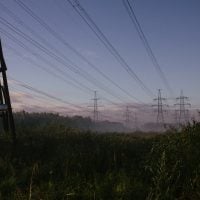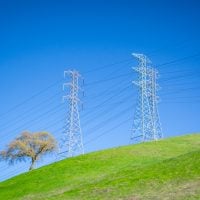Deadline: 13-Sep-23
The Great Barrier Reef Foundation is seeking projects that grow capacity and enable Reef catchment communities to care for the Reef and deliver community benefits through:
- Practical, targeted actions that drive efforts to reduce community carbon emissions through behaviour change and social innovations; and
- On-ground actions that mitigate climate change and build resilience by protecting, enhancing and restoring coastal habitats (seagrasses, mangroves and other tidal wetlands)
The goal of this grant round is to accelerate community climate action for the Reef, championed by Traditional Owners, community organisations, local councils, local businesses, and youth.
The program aims to grow capacity and readiness for scalable community-led action and strengthen diverse ways for communities to engage. Project partners will have opportunities to further strengthen technical design, collaboration, shared measurement and storytelling.
Focus Areas
- There are two identified focus areas for the grants, intended to support a diverse array of actions.
- A focus on empowering emissions reduction with practical, targeted actions through behaviour change and social innovations aims to respond to strong interest and identified need. Most Reef catchment residents (79%) recognise climate change as a serious threat facing the Reef, and 83% felt a strong moral obligation to reduce their personal impacts on the Reef. Yet, they need to strengthen ways to support participation and leadership, as well as clearer calls to action for behaviour change to make it easier for people to act. Few people (4-8%) connect climate-related actions as important for Reef conservation, but climate messages that talk about the Reef have been shown to strengthen intentions to adopt energy reduction behaviours.
- A focus on on-ground actions that mitigate climate change and build resilience by protecting, enhancing and restoring coastal habitats recognises that the Great Barrier Reef ecosystem is one of the world’s most powerful blue carbon sites and plays an important role in mitigating the impacts of climate change. Coastal habitats such as seagrasses, mangroves and tidal marshes are highly effective carbon sinks. For example, it is estimated that seagrass meadows in the Great Barrier Reef host an estimated 11% the world’s seagrass blue carbon. Their capacity to sequester carbon is recognised as a key to part of the solution to mitigate the impacts of climate change. Caring for these habitats offers additional benefits for Reef and wildlife protection, as well as providing a range of environmental, social, cultural, and economic values.
Funding Information
- A total of up to $2.7 million is available through the grants program.
- There are three types of grants:
- Enabling grants (Maximum funding up to $100,000): Projects will build readiness to implement high-impact projects (including but not limited to scoping and technical design, feasibility assessments, collaborative planning, strategy development, or targeted capacity building that offers clear outcomes and builds pathways for future work).
- Expansion and innovation grants (Funding from $100,000 up to $300,000): Projects will expand proven ideas or trial new ideas to accelerate activities.
- Major project grants (Minimum funding $300,000 and maximum up to $600,000): Projects will demonstrate integrated and collaborative approaches with multiple project partners, ideally through a coordinated place-based or sector-based approach. Major projects must include some emissions reduction activities.
Eligible Activities
- Project Management costs required to deliver the project
- Project delivery costs including staff, contractors, consultants, materials and appropriate travel and accommodation
- Monitoring and evaluation
- Communication and engagement
- Data analysis and synthesis
- On-ground projects that build capacity to protect and restore coastal ecosystems to work towards improving carbon sequestration and climate change mitigation
- Projects that apply local knowledge and behaviour change to measurably reduce emissions
- Costs to support project approvals
- Costs associated with participating in mentoring and tailored project design workshops (to be agreed post-application)
- Administrative costs required to deliver the project, but must not exceed 10% of the funding allocation
- Administrative costs include, but are not limited to, planning, insurances and audit costs.
Outcomes
- The Accelerator Grants: Community Climate Action for the Reef program supports the following outcomes:
- Deliver tangible and scalable community-led climate actions for the Reef
- Mobilise community engagement by building pathways that make it easier for more people to get involved, or grow their level of engagement
- Strengthen community capacity and opportunities to champion climate action for Reef protection
- Pilot collaborative ways to measure outcomes
- Share a powerful collective story of hope and action for the Reef
- These collective outcomes contribute towards:
- The Reef 2050 Plan, including:
- Work Area 1: Limit the impacts of climate change
- Work Area 5: Protect, rehabilitate and restore
- Sustainable Development Goal 13 – Take urgent action to combat climate change and its impacts, in particular Target 13.3: Improve education, awareness-raising and human and institutional capacity on climate change mitigation, adaptation
- The Reef 2050 Plan, including:
Eligibility Criteria
- To be eligible to submit an Application, applicants meet the following requirements:
- be operating in Australia and have an Australian Business Number (ABN)
- confirmation that all actual, perceived or actual conflicts of interest are declared and a management plan is proposed
- hold or be willing to hold the required insurances: Workers Compensation; Public Liability ($10,000,000 to 20,000,000 per occurrence); Professional Indemnity Insurance ($1,000,000 to $5,000,000) and Motor Vehicles and Plant and Equipment Insurance (if applicable). Minimum insurance requirements may vary depending on the type of project. Exact insurance requirements will be discussed with applicants during Stage three assessment.
- have developed and implemented comprehensive WHS policies and procedures for the project, or are willing to undergo a WHS risk assessment, take all reasonable steps to manage identified risks, and undergo specific training or qualifications that the Foundation recommends prior to commencing the project
- completes all sections of the application form
- and accepts the terms and conditions of the application and the specified terms in the agreement templates
- Collaborative applications are encouraged, although applicants may only apply to lead one project.
For more information, visit Great Barrier Reef Foundation.









































